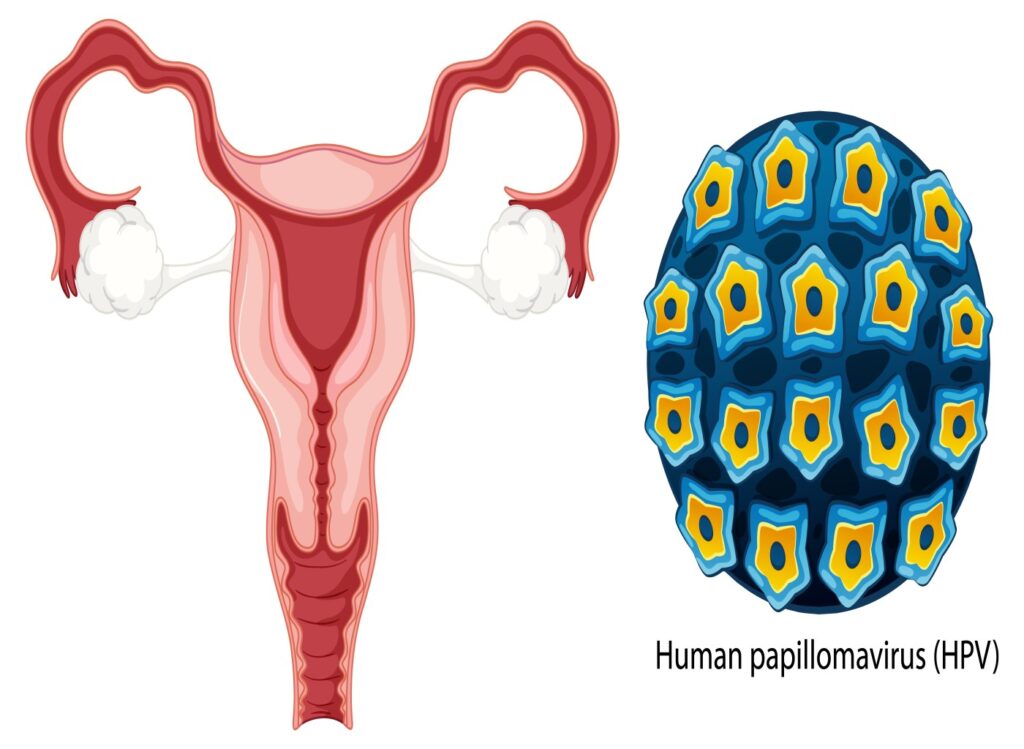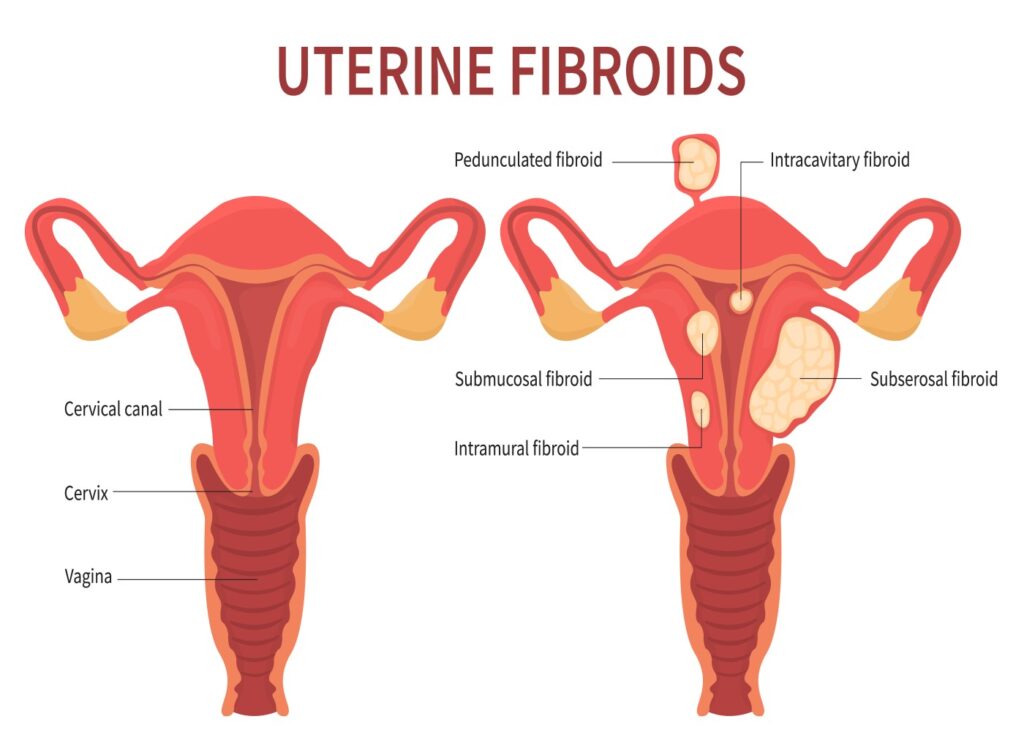Services
Our Healthcare Services

Menstrual Disorders
Menstrual disorders encompass a range of conditions affecting a woman’s menstrual cycle, including irregular periods, heavy bleeding (menorrhagia), painful periods (dysmenorrhea), and absence of menstruation (amenorrhea). These disorders can significantly impact a woman’s quality of life and may indicate underlying health issues. Proper diagnosis and management are crucial to alleviate symptoms and promote reproductive health.

Menopause
Menopause marks the end of a woman’s reproductive years, typically occurring in her late 40s to early 50s. It’s characterized by the cessation of menstrual periods due to hormonal changes, particularly a decline in estrogen production. Symptoms may include hot flashes, night sweats, mood swings, vaginal dryness, and changes in libido. Management often involves hormone replacement therapy, lifestyle adjustments, and medications to alleviate symptoms and maintain overall health.

Sexually Transmitted Infections (STIs)
Sexually Transmitted Infections (STIs) are infections transmitted through sexual contact, including vaginal, anal, or oral intercourse. Common STIs include chlamydia, gonorrhea, syphilis, HIV/AIDS, herpes, and HPV. These infections can cause symptoms such as genital sores, discharge, pain, and itching. Early detection and treatment are essential to prevent complications and further transmission. Practicing safe sex and regular testing are crucial for STI prevention.

Contraception and Family Planning
Contraception and Family Planning encompass various methods to prevent unintended pregnancies and plan the timing and spacing of children. Options range from barrier methods like condoms and diaphragms to hormonal methods such as birth control pills, patches, and implants. Long-acting reversible contraceptives (LARCs) like intrauterine devices (IUDs) and contraceptive injections offer highly effective options. Counseling on contraceptive choices and reproductive health education are integral to family planning services.

Endometriosis
Endometriosis is a chronic condition where tissue similar to the lining of the uterus grows outside the uterus, commonly on the ovaries, fallopian tubes, and pelvic lining. It can cause severe pelvic pain, especially during menstruation, intercourse, or bowel movements. Other symptoms include heavy periods, infertility, and digestive issues. While there’s no cure, treatment options include pain management, hormone therapy, and surgery to remove endometrial tissue. Early diagnosis and a multidisciplinary approach are crucial for managing symptoms and improving quality of life.

Polycystic Ovary Syndrome (PCOS)
Polycystic Ovary Syndrome (PCOS) is a common hormonal disorder in women, featuring irregular menstrual cycles, excess androgens, and ovarian cysts. Symptoms include irregular periods, excessive hair growth, acne, and weight gain. PCOS can lead to fertility issues, diabetes, and heart disease. Management involves lifestyle adjustments, hormone-regulating medication, and fertility treatments. Early diagnosis and intervention are critical for mitigating risks and improving symptom control.

Preeclampsia
Preeclampsia is a serious pregnancy complication characterized by high blood pressure and signs of damage to other organ systems, most often the liver and kidneys. It usually begins after 20 weeks of pregnancy and can lead to severe complications for both the mother and the baby if left untreated. Monitoring blood pressure and regular prenatal care are crucial for early detection and management.

Infertility
Infertility is the inability to conceive after a year of unprotected intercourse. It can result from various factors, including hormonal imbalances, reproductive system disorders, age, lifestyle, and environmental factors. Diagnosis involves medical tests to identify the underlying cause. Treatment options range from medication and surgery to assisted reproductive technologies like IVF. Counseling and support are vital for coping with the emotional toll of infertility.

Ectopic Pregnancy
Ectopic pregnancy occurs when a fertilized egg implants outside the uterus, commonly in the fallopian tubes. This condition is dangerous and requires immediate medical attention as it can lead to life-threatening complications such as rupture of the fallopian tube and internal bleeding. Symptoms include abdominal pain, vaginal bleeding, and shoulder pain. Treatment often involves medication or surgery to remove the ectopic pregnancy and preserve reproductive health.

Vaginal Infections
Vaginal infections refer to various conditions caused by bacteria, fungi, or viruses that affect the vaginal area. Common types include yeast infections (caused by Candida), bacterial vaginosis, and trichomoniasis. Symptoms may include abnormal vaginal discharge, itching, burning, and discomfort during urination or intercourse. Treatment typically involves antifungal or antibiotic medication, depending on the specific infection, to restore vaginal health and alleviate symptoms.

Pelvic Inflammatory Disease (PID)
Pelvic Inflammatory Disease (PID) is an infection of the female reproductive organs, often caused by sexually transmitted bacteria like chlamydia or gonorrhea. It can lead to inflammation of the uterus, fallopian tubes, or ovaries, and if left untreated, can cause serious complications such as infertility, chronic pelvic pain, or ectopic pregnancy. Symptoms include pelvic pain, abnormal vaginal discharge, fever, and painful urination. Prompt diagnosis and antibiotic treatment are essential to prevent long-term complications.

Uterine Fibroids
Uterine fibroids are noncancerous growths that develop in the uterus, ranging in size from small to large. They are quite common among women of childbearing age. While many women may not experience any symptoms, others may have heavy menstrual bleeding, pelvic pain or pressure, frequent urination, or difficulty conceiving. Treatment options include medication to manage symptoms, minimally invasive procedures, or surgery to remove the fibroids, depending on their size and severity.

Abnormal uterine bleeding
Abnormal uterine bleeding refers to any irregular bleeding from the uterus that differs from a woman’s typical menstrual cycle. This can include heavy bleeding (menorrhagia), prolonged bleeding, bleeding between periods (metrorrhagia), or postmenopausal bleeding. Causes may vary and can include hormonal imbalances, uterine fibroids, polyps, pregnancy complications, or underlying medical conditions. Diagnosis typically involves a thorough medical history, physical examination, and possibly imaging or laboratory tests. Treatment depends on the underlying cause and may include medication, hormonal therapy, or surgical interventions.

Preconceptional counselling
Preconceptional counseling involves providing guidance and support to individuals or couples who are planning to conceive a child. It typically covers various aspects of pre-pregnancy health, lifestyle, and medical history to optimize the chances of a healthy pregnancy and baby. Topics may include prenatal vitamins, nutrition, exercise, managing chronic conditions, avoiding harmful substances, and assessing potential genetic risks. Counseling also addresses any concerns or questions the individuals may have, empowering them to make informed decisions and prepare for a successful pregnancy journey.

Urinary Incontinence
Urinary incontinence is the involuntary leakage of urine, ranging from occasional to frequent and severe episodes. It can occur due to weakened pelvic floor muscles, nerve damage, or other underlying medical conditions. Types include stress incontinence (leakage during physical activities), urge incontinence (sudden urge to urinate), and overflow incontinence (inability to completely empty the bladder). Treatment options vary from lifestyle modifications and pelvic floor exercises to medication and surgical interventions, depending on the cause and severity of the condition. Management aims to improve bladder control and quality of life.
